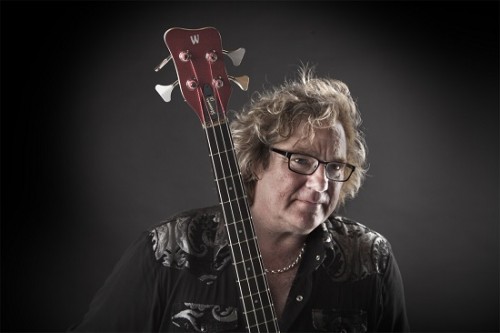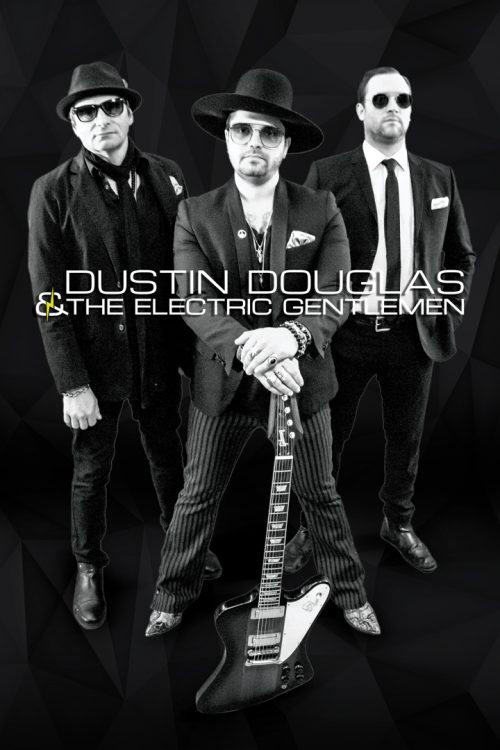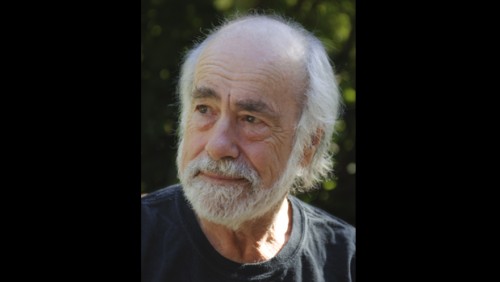If you’re playing alongside hotshots like Joe Satriani and Steve Vai and you still get noticed, you must be pretty good in your own right. As a bassist for those guitar heroes and beyond, as well as throughout a prolific solo career, Stu Hamm has not only made a name for himself with his jaw-dropping bass skills, but also as an educator, releasing a slew of instructional materials and appearing as a featured guest at clinics and musicians’ camps, such as the recently completed G4 Experience headlined by Satriani.
With a new album, “Book Of Lies,” out and a slate of tour dates on the horizon, including Tuesday, June 14, at Havana in New Hope, Pa., and Thursday at The Iridium in New York, we recently spoke with Hamm about his new band – which features Alex Skolnick of Testament on guitar and drummer Joel Taylor, who’s played with Allan Holdsworth and Al DiMeola – playing alongside musical giants and the early influences that formed the foundation of his playing.
What is the concept or the approach you took to making the new album “Book Of Lies”?
It’s a recording of the way I was writing and playing at the end of 2014. And a great way to be a good composer and bandleader is you hire great musicians. You know, [the song] “L.S.D.,” I’ve been on the road with Carl Vereheyen and his band, with Jason Smith, and he recorded that song; we played that song every night, and soon as we got off the road we worked on it.
Tell me about the show you’ll be taking on the road.
It sort of remains to be seen. Alex and I have certainly played together a lot and he’s grown as far as jazz and fusion, and Joel Taylor, the drummer, and I have played together, and I just thought that those two would be a great mix to play my tunes. Whenever I’m putting a band together, I’m not expecting it to sound just like the record. So there’ll be a lot of listening and interplay, certainly some solo pieces. They’re good friends, they’re great musicians, and I look forward to being challenged every night.
How was the G4 Experience?
It was great. I do a lot of those camps and they’re all somewhat different, but I thought this was fun. On a personal level it was great, because it was a beautiful four days in Cambria, which is just a wonderful spot, and I hadn’t seen Joe or Mike [Keneally] or a lot of those guys for quite a while, so it’s nice to hang out with those guys.
Compared to playing at concerts, do you approach your bass clinics differently?
No, dude, I’ve just been doing it for so long – I have five or six instructional courses out – so I’m just ready willing and able to take it wherever it needs to go at a moment’s notice. A lot of times when I do my solo (clinics), it’s more of a performance. And then I have this thing I’ve been working on, it’s sort of a one-man show, where I sort of underscore what I’m talking about, I talk about my career, I talk about playing with Joe and play some other songs, I tell a few jokes. It usually works better when it’s a larger crowd. If you get in a situation where there’s two or three bass players, then you can actually focus on a topic like slap technique or something like that.
When you are playing alongside a guitar player like a Vai or Satriani, is it a challenge to play a supportive role and also find spots to kind of step out a little bit and put the bass in the foreground once and a while?
No, I think people gravitate to the instruments they play or the instruments gravitate to them. Guitar players are a different breed, not all of them, but generally for the most part, a lot of them just want to solo, they just want to get their shit real loud real fast, and that’s sort of the antithesis of what a bass player does, which is very carefully observe everything that’s going on and subliminally drive traffic. You may never know – hopefully you’ll never know – when the drummer’s speeding up and as a bass player I try to slow things down. And I think that’s really the essence of what a bass player does. And it’s just as hard to do effectively as getting out front.
What did you hear at an early age that made you want to play music?
Growing up just being around so many types of music from the avant garde stuff like John Cage to pop music, obviously The Beatles, and my oldest brother Chris was listening to a heavy dose of Quicksilver Messenger Service and Pink Floyd and Mahavishnu Orchestra and Return To Forever and Miles Davis. So I had a really diverse musical background. Honestly Chris Squire was a guy for me, when I was just starting to become aware at 12 or 13, I specifically remember hearing “Roundabout” on the radio and just buying “Fragile,” and that was it for me, dude. I met him a few times and had the honor of writing the speech to induct him into the Bass Hall Of Fame. And of course guys like John Entwistle and Jeff Berlin and Jaco that sort of shined a light for all of us.
What have you been listening to lately?
Well, I downloaded the complete Bach, I had most of those but there were a couple I didn’t have, and I bought the soundtrack to the film “Ex Machina,” and then there’s an L.A. band called Dawes, that is a sort of Laurel Canyon sound, three-part jingly-jangly harmonies. There’s not a whole lot of things I like about L.A., but the radio stations are great. The station I listen to plays them a lot and I sort of like the sound for the summer. I like the record and I enjoy listening to it.




Leave a Reply